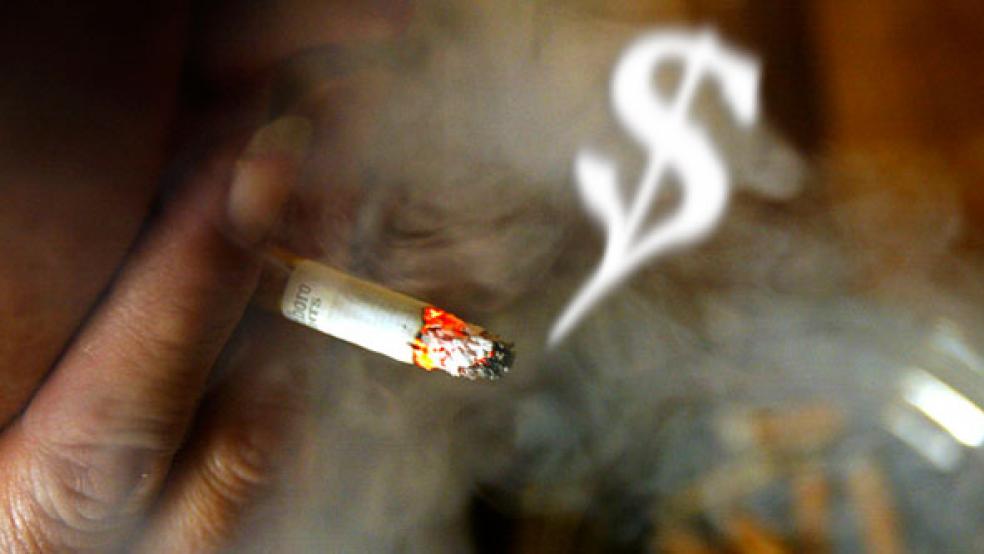Federal excise taxes sometimes are viewed as a panacea for helping the government raise much-needed revenue while discouraging bad behavior.
Some lawmakers and advocacy groups over the years have viewed excise taxes on motor fuel, alcohol and tobacco in particular as elixirs for underwriting the cost of worthy government programs and preventing excessive driving, drinking and smoking that are bad for the environment and bad for public health.
But recent studies suggest that there sometimes are unintended consequences to raising federal excise taxes, and that government policy makers don’t always get the results they anticipate or hope for.
“They are pitched and sold as these revenue raisers that are supposed to reduce the deficit and reduce the debt astronomically, and that just really never plays out,” P.J. Austin, an analyst with the advocacy group Citizens Against Government Waste, said Tuesday. “What you end up seeing is that they often distort the market and drive consumers to lower tax venues or to venues that have no taxes at all.”
Case in point: The Children’s Health Insurance Program Reauthorization Act was signed into law by President Obama in February 2009 to provide health care benefits to the children of low income families. The program was to be funded by raising the federal tax rate for cigarettes from 30 cents per pack to $1.01 per pack – in effect, forcing the tobacco industry to foot the bill for the expanded federal health care program.
But an April report by the Government Accountability Office (GAO) found that major tobacco manufacturers eluded the brunt of the increased cigarette tax by shifting production to other tobacco products that were subject to a lower tax rate.
Cigarette manufacturers reportedly found it easy to escape the full impact of the excise tax increase because the law was vague in differentiating between classes of products that were to be taxed at the new high rate and those that would continue to be taxed at a lower rate. For example, the big boost in the excise tax on roll-your-own tobacco and small cigars led to an increase in production – and popularity among consumers --of pipe tobacco and large cigars.
The GAO found that as a result of these market shifts, the excise taxes produced far less revenue than was originally projected. Between 2009 and the end of fiscal 2011, the Treasury Department raised $40 billion in revenue as a result of the increased cigarette tax. However, during that same period, the GAO estimates that the Treasury lost between $615 million and $1.1 billion in federal revenue due to manufacturer and consumer transitions from roll your own tobacco to pipe tobacco.
Yesterday, the Congressional Budget Office issued a report of its own speculating on the virtue of raising the federal cigarette excise tax even more.
The study poses the question of how much the government would save in health care costs and how much more revenue it could raise to offset the budget if the tax on cigarettes and small cigars was raised by an additional 50 cents per pack -- to $1.51 –and adjusted for inflation.
The federal government spends a staggering $1 trillion a year on health care programs, including Medicare and Medicaid, and the children’s health care initiative. “So it is easy to imagine that policies that promote a healthier population could have a significant impact on the federal budget,” the CBO stated.
Think again.
For sure, average annual health care spending per capita would decline because of improvements in health prompted by less smoking, the study said. As a result outlays for the major federal health care programs would be lower for a number of years than they would be otherwise.
Over the long term, however, net federal spending would be higher for federal retirement and health care programs as increases in the number of beneficiaries prompted by longer longevity outweighed the decline in average federal health care spending per capita.
The anticipated improvements in Americans’ general health would boost revenues by increasing earnings, partly because people might work longer than they would otherwise, according to the CBO study.
CBO’s analysis suggests that increasing the excise tax on cigarettes by 50 cents a pack would reduce federal budget deficits by a total of $42 billion through 2021, or about $4 billion a year. There could be some other positive revenue effects for the government, in terms of additional income and payroll taxes generated by the expanded number of healthy workers in the workforce.
But the bottom line, CBO reported: “Taken together, the health effects of the increase in the federal excise tax on cigarettes would produce very small net reductions in the deficit for about five decades and very small increases in the deficit thereafter.”
In short, nothing to get too excited about.


